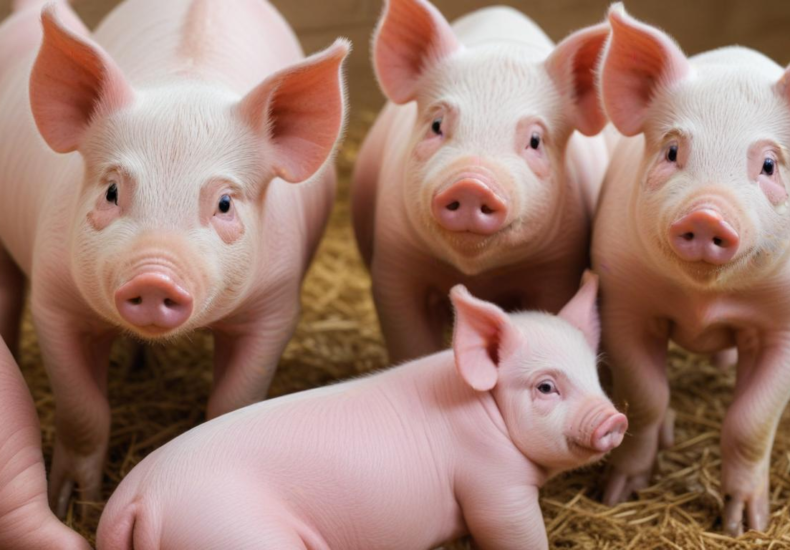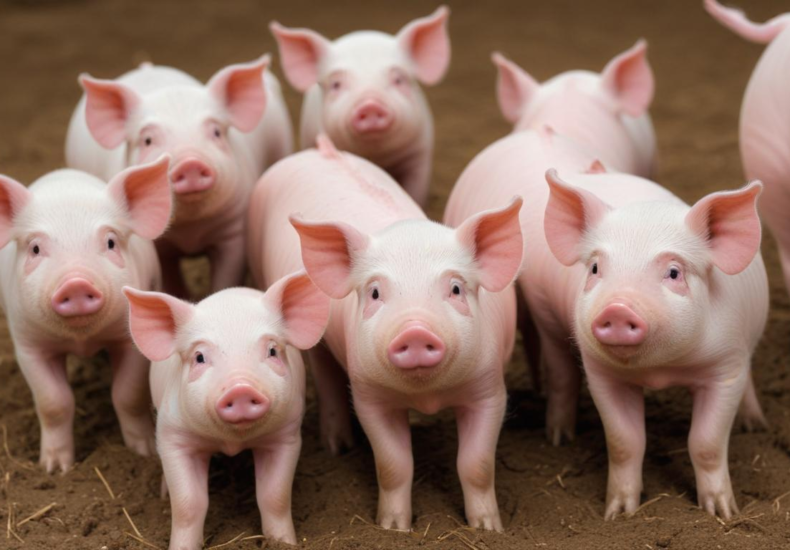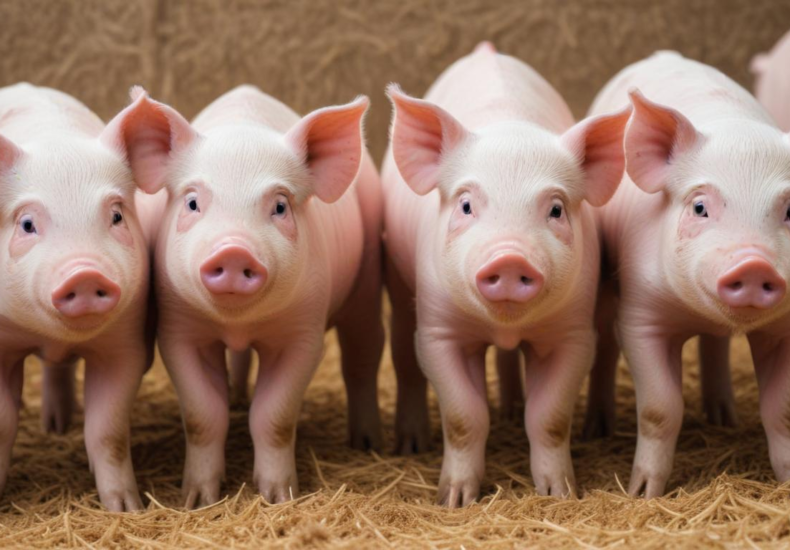Tag: reproduction
how hybrid vigor improves pig performance
Hybrid vigor, or heterosis, significantly enhances pig farming performance through crossbreeding. By combining diverse genetic backgrounds, hybrid pigs often surpass purebreds in growth rates, feed efficiency, and reproductive performance. They also exhibit increased disease resistance and adaptability to various environments, making them a promising option for producers. Understanding the intricacies of hybrid vigor, alongside effective management practices, is essential for optimizing pig performance and ensuring sustainable production in the agricultural sector. Discover the transformative potential of hybrid breeding for the future of pig farming.
advancements in pig genetics for better reproduction
Recent advancements in pig genetics are reshaping breeding strategies, enhancing reproductive efficiency and herd health. Groundbreaking technologies like genomic selection and SNP analysis enable precise identification of traits such as litter size and fertility rates, promoting healthier and more productive pigs. As artificial intelligence and data analytics integrate into breeding practices, producers can make informed decisions that align with sustainability goals. The future of swine genetics promises not only increased profitability but also a profound shift towards more resilient and environmentally friendly farming methods.
why boar genetics are crucial for pig reproduction
The role of boar genetics is crucial in shaping swine production, influencing traits such as fertility, growth rates, and overall herd performance. Key factors like inheritance patterns, genomic selection, and trait heritability are integral for enhancing breeding success. Additionally, understanding genetic diversity helps mitigate inbreeding risks and improve offspring vigor. As advancements in genetic technologies evolve, the future of pig breeding promises innovations that could revolutionize reproductive efficiency and sustainability in the industry. Explore how these developments may redefine swine production practices.
genetic influences on pig mothering ability
The genetic foundation of mothering ability in pigs reveals a complex interplay of hereditary traits that dictate maternal behaviors crucial for piglet survival. Key traits such as nursing ability, fostering behavior, and protective instincts are assessed through phenotypic evaluations and advanced genomic techniques. The results of ongoing genetic research could revolutionize breeding strategies, optimizing sow performance and boosting overall productivity in pig farming. Future studies may delve into the impact of environmental factors and epigenetics, potentially identifying new pathways to enhance maternal traits and promote healthier litters.
why pigs have large litters genetically
Genetic factors play a pivotal role in determining the litter sizes of pigs, influencing everything from reproductive performance to herd productivity. Breeders are increasingly focused on understanding traits linked to ovulation rates, embryonic survival, and nutrient needs to enhance fertility outcomes. Large litters not only improve individual pig survival but also shape the broader economics of pig farming, prompting advancements in animal welfare and sustainability. Discover how these elements intertwine to revolutionize the future of swine production.
genetics of pig fertility and litter size
Factors influencing pig fertility encompass genetics, environment, and management, each playing a critical role in reproductive success. Selective breeding, proper nutrition, and optimal housing conditions significantly affect litter size and overall reproductive efficiency. Insights from genetic research further illuminate the traits associated with improved fertility, with ongoing studies exploring innovative techniques like genomic selection and epigenetics. Understanding these interconnected elements provides a pathway to enhance productivity and sustainability in swine production. Discover the complexities behind boosting pig fertility and the strategies that stand to transform the industry.
understanding hybrid pigs and genetic advantages
Hybrid pigs are transforming the landscape of pig farming through innovative genetic strategies that combine the best traits of various breeds. This approach enhances growth rates, feed efficiency, and reproductive performance while significantly improving disease resistance. With advancements in genome editing and data-driven breeding techniques, the future of hybrid pigs promises substantial gains in productivity and sustainability, ultimately addressing the increasing global demand for pork. Discover how this cutting-edge genetic revolution is reshaping agricultural practices and promoting healthier livestock.
the future of pig genetics and reproduction
The advancement of genomics and reproductive technologies in pig breeding marks a transformative shift in the swine industry. Innovations such as genomic selection, artificial insemination, and gene editing are revolutionizing trait enhancement, improving growth rates, disease resistance, and overall animal welfare. As breeders leverage these tools, they face both exciting opportunities and ethical considerations. The future promises a balance between productivity and sustainability, with implications that may redefine the market landscape and shape the very essence of livestock farming. Discover how these developments could reshape the future of pig breeding.
differences in pig reproduction based on breed genetics
The reproductive outcomes in pigs are profoundly shaped by the genetics of various breeds, revealing stark differences in litter size, fertility rates, and overall reproductive efficiency. While some breeds, like Yorkshire and Landrace, flourish in reproductive traits, others, such as Duroc, exhibit limitations due to a focus on growth rather than reproduction. These genetic variances, coupled with environmental factors and behavioral characteristics, can significantly influence breeding practices and herd productivity. Understanding these intricacies can unlock strategies for optimizing reproduction in pig farming.
understanding pig chromosomes and reproduction
The genetic framework of pig reproduction is key to optimizing breeding practices and enhancing overall productivity in swine operations. With 38 chromosomes bearing genetic material that influences traits such as litter size and disease resistance, breeders can leverage this information to select for desirable characteristics. Advanced genomic techniques, including whole-genome sequencing, are transforming approaches to breeding. As researchers uncover the intricate relationship between chromosomes and reproductive success, new strategies emerge that could revolutionize the future of pig production. Explore the evolving synergies between genetics and reproductive physiology in this vital agricultural domain.
Archives
Calendar
| M | T | W | T | F | S | S |
|---|---|---|---|---|---|---|
| 1 | ||||||
| 2 | 3 | 4 | 5 | 6 | 7 | 8 |
| 9 | 10 | 11 | 12 | 13 | 14 | 15 |
| 16 | 17 | 18 | 19 | 20 | 21 | 22 |
| 23 | 24 | 25 | 26 | 27 | 28 | |









